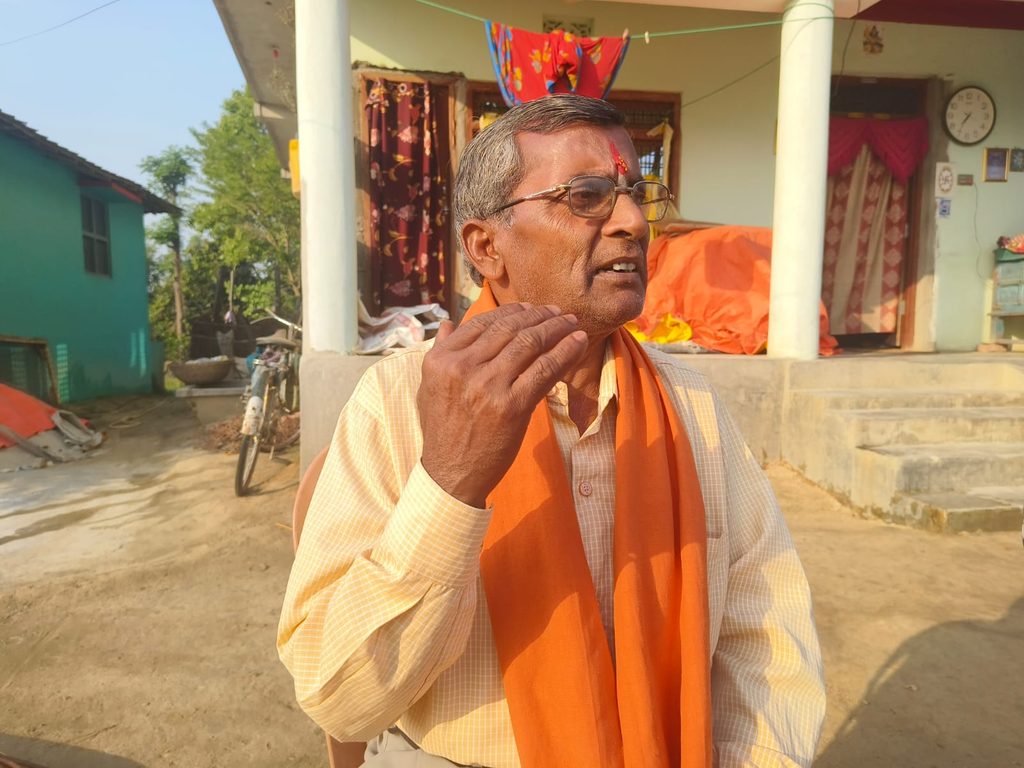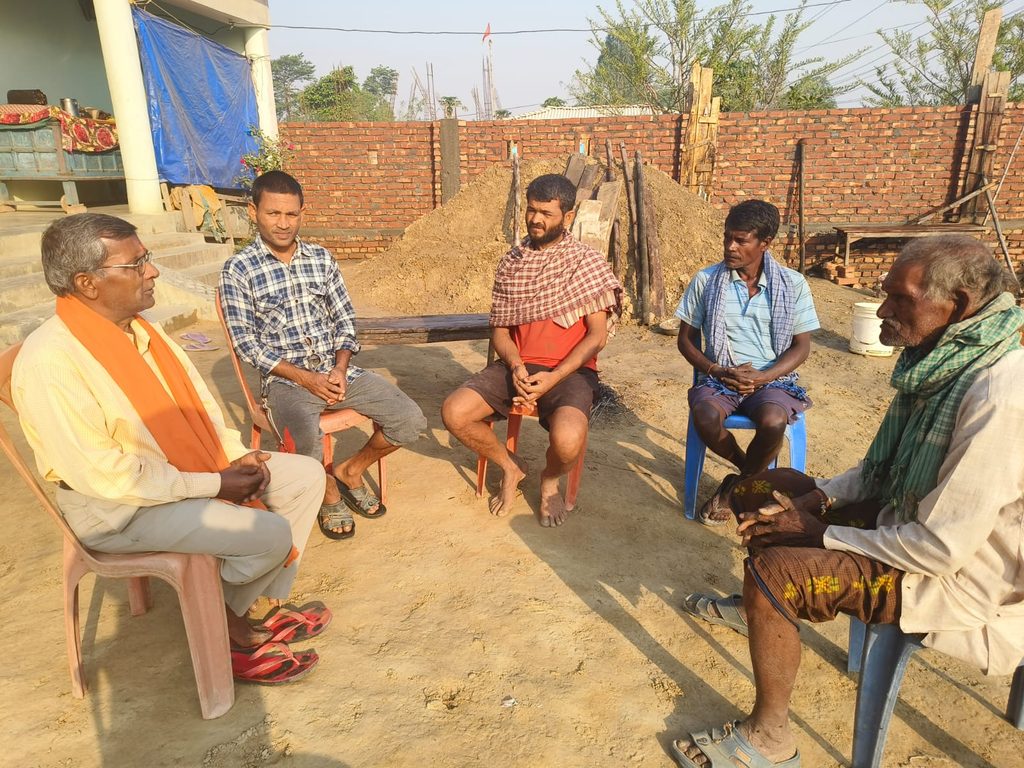Paltu campaigns to end child marriage
Once a priest who conducted child marriages, 55-year-old Paltu from Dhanusa now champions girls’ rights and campaigns to end the practice.

A religious leader’s journey to change
“I have conducted countless marriages, focusing more on love and unity than on age,” says 55-year-old Paltu, a well-known priest from Dhanusa district. “While I respected traditions, I also knew the legalities around child marriage in Nepal. Now, I want to advocate for marriages based on consent and rights, where young people can thrive.”
In Dhanusa, child marriage continues to affect the lives of many girls, tied to social norms, economic pressures, and gender inequality. The dowry system, limited education opportunities, and weak law enforcement all fuel this harmful practice.
Religious leaders like Paltu hold significant influence in shaping community attitudes. Their voices carry weight in homes, temples, and gatherings. For girls like 15-year-old Bipasa, a campaigner from Dhanusa, their role is clear: “If religious leaders say child marriage is wrong, parents will listen. If they encourage us to stay in school, things can change. We want every girl to be safe and happy, not married too young.”
“If religious leaders say child marriage is wrong, parents will listen.”
Bipasha, 15, campaginer
At first, Paltu admits he did not see the harm. “Parents often asked me to marry off their children early. I thought refusing would not make a difference because someone else would agree. This was also how I earned my living.”
But that changed when he attended training sessions on child, early, and forced marriage, sexual and reproductive health and rights (SRHR), water, sanitation, and hygiene, and menstrual health management. At first reluctant, Paltu only joined after a social mobiliser convinced him. What he learned reshaped his perspective: the health risks of early pregnancies, the educational opportunities lost, and the cycles of poverty child marriage creates.
“I used to think SRHR was taboo,” Paltu reflects. “Now I see its importance. I even speak about menstrual health and the need for better sanitation facilities. These things matter for the dignity and safety of girls.”
“Now I see its importance. I even speak about menstrual health and the need for better sanitation facilities. These things matter for the dignity and safety of girls.”
Paltu, Religious Leader
Speaking out against child marriage
With this new understanding, Paltu decided to act. Today, he refuses to conduct child marriages and instead raises awareness about the risks and legal consequences. Recently, he stopped two child marriages by speaking directly with families and encouraging them to send their daughters back to school.
“I speak everywhere, at tea shops, in religious lectures, during traditional gatherings. Some people boycott me from religious events, and others accuse me of political motives. But I am not afraid. If we want to end child marriage, everyone must play their part, teachers in classrooms, police through law enforcement, and ward offices by issuing letters against child marriage. As religious leaders, we will support these efforts.”
Despite resistance, Paltu’s commitment is unwavering. His voice adds strength to local campaigners like Bipasa, who continue to push for change in their villages.

About the project
The Child, Not Bride project engages religious leaders, traditional healers, and community influencers to challenge child marriage and harmful practices. By leading awareness campaigns, workshops, and advocacy efforts, these leaders are helping shift social norms, promote girls’ education, and strengthen access to SRHR services.
Implemented by BEE Group in Bardiya and Aasaman Nepal in Dhanusa, the project empowers communities and pushes for policy reform. Its vision is clear: a future where child marriage is eradicated, girls complete their education, and every child can reach their full potential.


